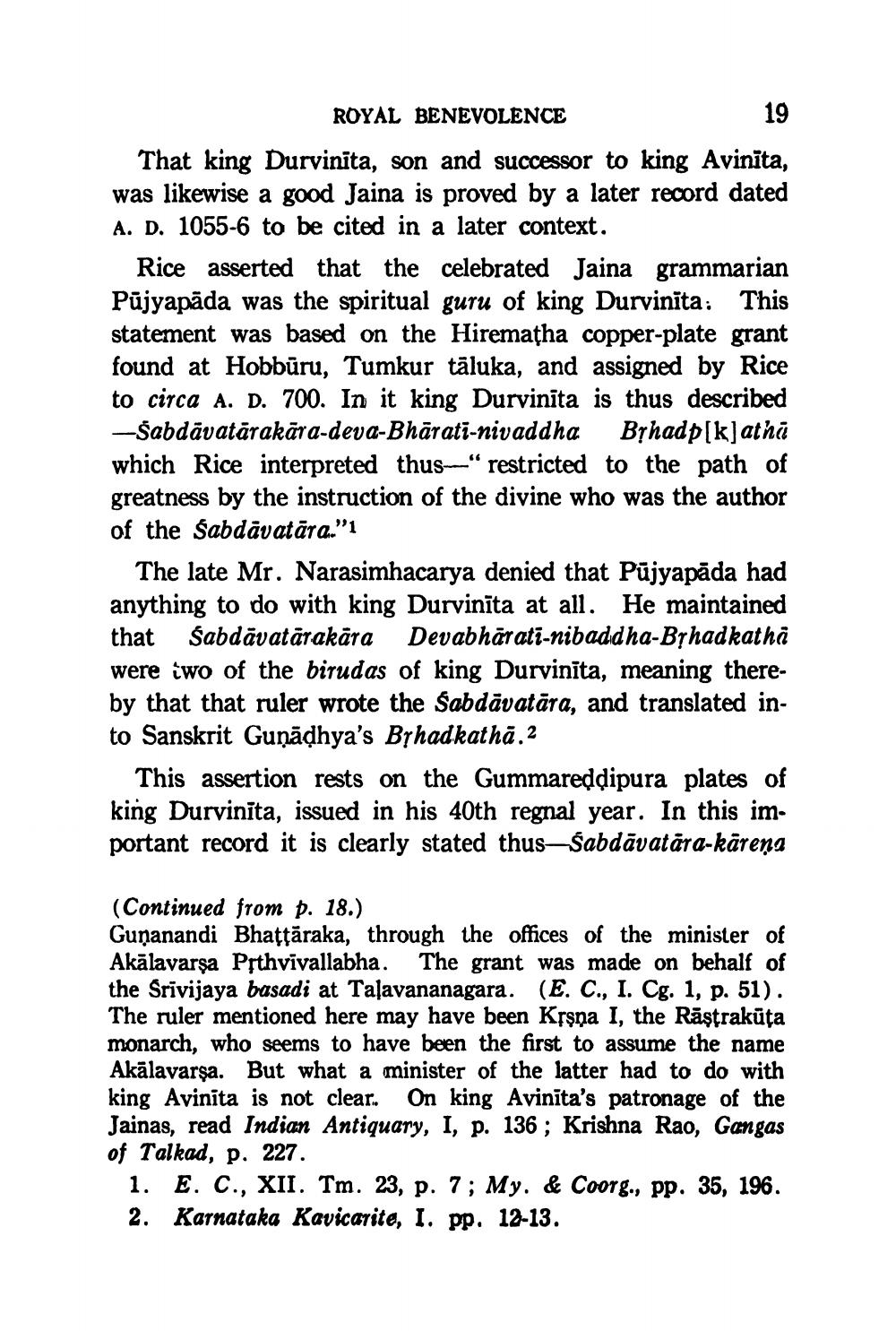________________
19
ROYAL BENEVOLENCE That king Durvinīta, son and successor to king Avinīta, was likewise a good Jaina is proved by a later record dated A. D. 1055-6 to be cited in a later context.
Rice asserted that the celebrated Jaina grammarian Pūjyapāda was the spiritual guru of king Durvinita: This statement was based on the Hirematha copper-plate grant found at Hobbūru, Tumkur tāluka, and assigned by Rice to circa A. D. 700. In it king Durvinīta is thus described
-Sabdāvatārakāra-deva-Bhārati-nivaddha Brhadp[k]atha which Rice interpreted thus" restricted to the path of greatness by the instruction of the divine who was the author of the Sabdāvatāra."1
The late Mr. Narasimhacarya denied that Pūjyapada had anything to do with king Durvinīta at all. He maintained that Sabdāvatārakära Devabhārati-nibaddha-Brhadkatha were two of the birudas of king Durvinīta, meaning thereby that that ruler wrote the Sabdāvatāra, and translated into Sanskrit Guņādhya's Byhadkathā.2
This assertion rests on the Gummareddipura plates of king Durvinīta, issued in his 40th regnal year. In this important record it is clearly stated thus-Sabdāvatāra-kāreņa
(Continued from p. 18.) Gunanandi Bhattāraka, through the offices of the minister of Akālavarşa Pșthvivallabha. The grant was made on behalf of the Srivijaya basadi at Talavananagara. (E. C., I. Cg. 1, p. 51). The ruler mentioned here may have been Krşņa I, the Rāştrakūta monarch, who seems to have been the first to assume the name Akālavarşa. But what a minister of the latter had to do with king Avinita is not clear. On king Avinīta's patronage of the Jainas, read Indian Antiquary, I, p. 136 ; Krishna Rao, Gangas of Talkad, p. 227.
1. E. C., XII. Tm. 23, p. 7; My. & Coorg., pp. 35, 196. 2. Karnataka Kavicarite, I. pp. 12-13.




